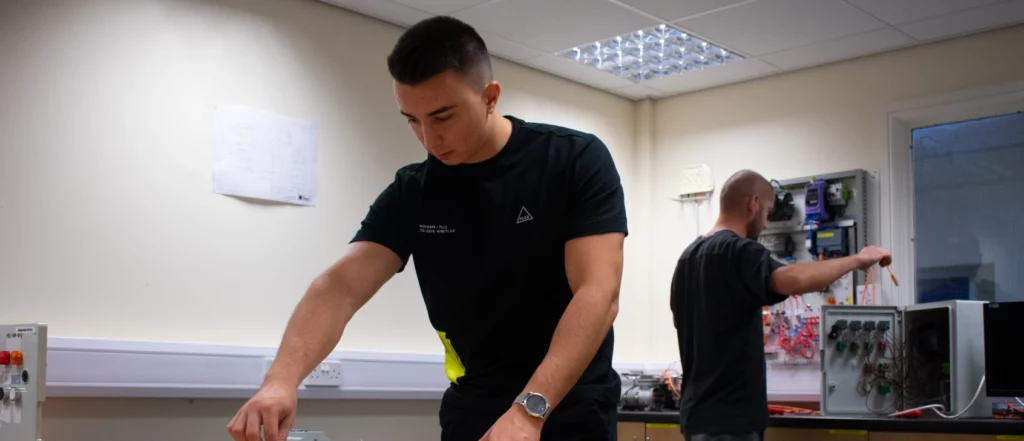Have a large Apprenticeship quota to fill? Are you looking for beneficial ways to spend your Apprenticeship Levy?
In operation since 1988, and governed by Directors of local businesses, we understand what you need from a training provider.
We know that…

Contact us today about your apprenticeship requirements
“Apprentices are prepared well for learning. Leaders and trainers have created an inclusive environment in which apprentices from diverse backgrounds work well together. Apprentices benefit from being taught by highly skilled and knowledgeable engineering trainers who have the confidence and ability to allow flexibility in learning.”

See how easy it is to take on an apprentice with Derwent Training. We support our employers throughout the full process, ensuring the correct employer/apprentice relationship

Our working practices are built on an ethos of honesty and integrity, ensuring we provide employers with pertinent advice, never agreeing to deliver training that an employer does not need, or that would not be beneficial.

We are committed to an inclusive, professional and safe training environment for all of our apprentices.
We are proud of our working relationships, partnerships and accreditations

Do you already have an apprenticeship opportunity to advertise? List your vacancy with us and open the door to potential apprentices.
Your apprentice should have the same conditions as all other employees working at similar grades, or in similar roles. This includes paid holidays, sick pay, any benefits you offer, and any support you offer such as coaching and mentoring. You should always supply your apprentice with a contract of employment and you should have a role available in which they can become competent as part of their Apprenticeship development.
Support your apprentice by participating in tripartite reviews every 10 weeks. This meeting is done between you, your apprentice and their trainer to discuss and agree progress. This is a funding requirement set by the Education and Skills Funding Agency. You must pay apprentices at least the National Minimum Wage. The contract of employment should make it clear what wage you’ll pay your apprentice and for what hours. 16-18 year old apprentices are entitled to the National Minimum Wage for apprentices, as well as those who are 19+ and in the first year of their Apprenticeship only.
You must pay your apprentice for time spent training or studying for their Apprenticeship. If your apprentice is also studying for an English and/or Maths qualification that is required by their Apprenticeship, they are entitled to be paid study time during their normal working hours. All apprentices will be required to pass an End-Point Assessment (EPA) in order to gain certification. It is the employers discretion as to when their apprentice is ready for their EPA, but this must be within 3 months of their completion date.
The Education and Skills Funding Agency states that all apprentice employers must have a health and safety assessment of their workplace to ensure that all apprentices are working in safe conditions. As Engineering falls in the high risk category this will be updated annually. We will also require a copy of your Employers Liability Insurance Certificate for audit purposes.
Your apprentice must work for 30 hours or more per week, which must include their off-the-job training. We will ask you for their working hours’ when doing their sign-up paperwork to work out the 20% off-the-job training requirement during the apprenticeship. Your apprentice is required to complete 20% off-the-job learning as part of the Apprenticeship and this will be regularly audited by the Education and Skills Funding Agency (ESFA). Your apprentice needs to log their off-the-job training on their e-portfolio. Your apprentice’s trainer will discuss this during their tripartite progress reviews.
Find out about the facilities and training provision we can offer here